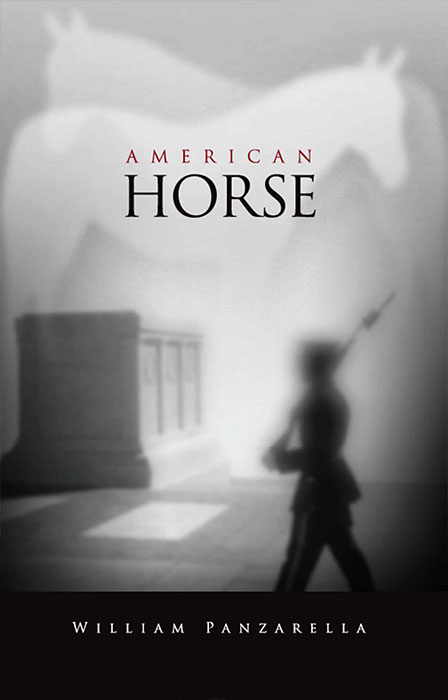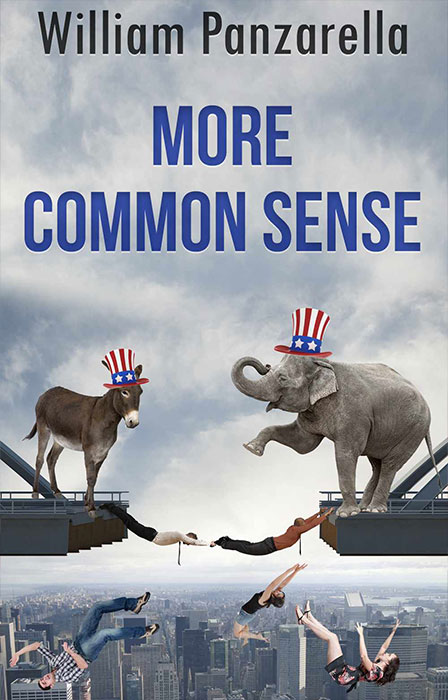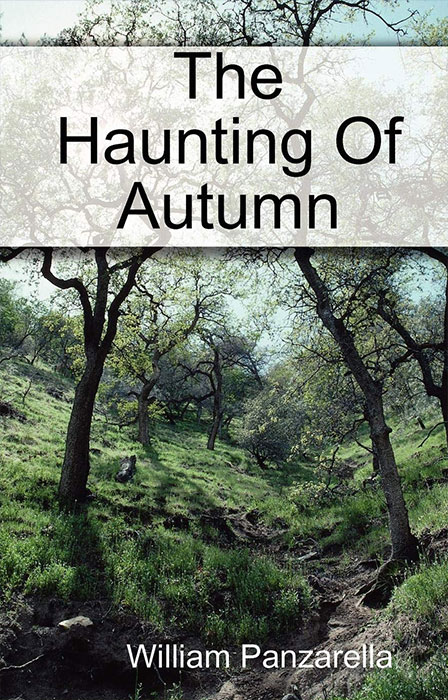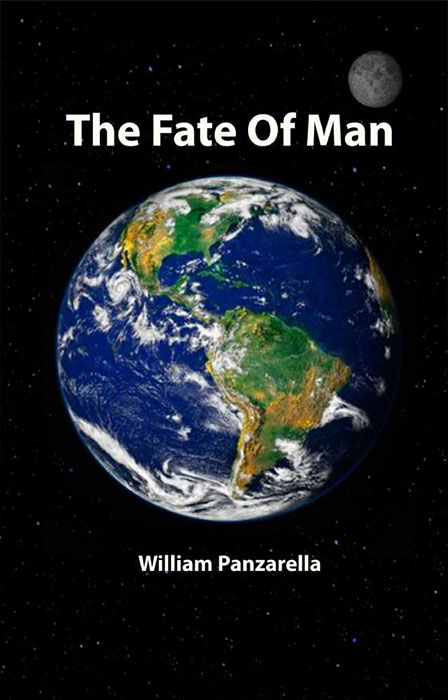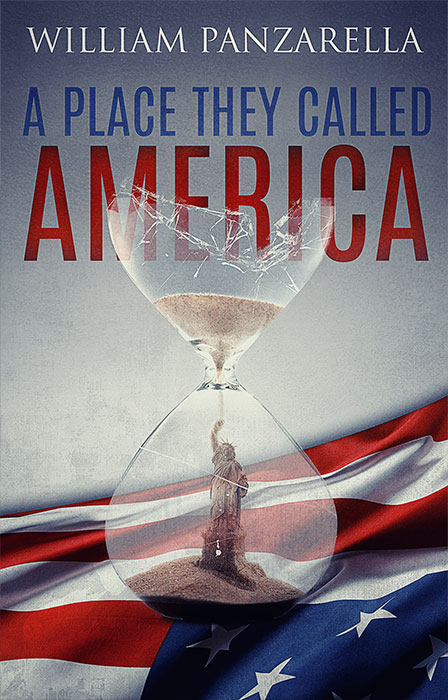BIO

I was born in 1970 in Massapequa, New York on Long Island. I was the only child of my mother and father. However, my father had two sons and a daughter from two previous marriages and my mother had four sons from a previous marriage, though the eldest died in a motorcycle accident before I was born. My siblings were all at least ten years older than me and when you are ten, you are not going to be hanging out with a twenty-year-old. Also, by the age I was old enough to really start remembering everything they had all moved out. So, for all intents and purposes I grew up an only child.
My parents were also older. My father was born in 1919 and though he provided for us he was always working and never around. I never played catch with him, never went on any camping trips with him. We never went to the movies together or had any father-son talks. My mother, who was a saint in my eyes, was always the one who took me anywhere I needed to go. But though we would become close later in life, as a child the age difference made it difficult for me to relate to her. So, growing up I was left to figure things out on my own.
Though my father came from humble beginnings, tough hard work and perseverance, he eventually came to own some commercial real estate in Howard Beach, NY. Growing up I considered us upper middle class. There were never any arguments about money, we took occasional trips to Disneyland, Arizona and even Aruba, and I had all the toys I could want. However, though my father had a Cadillac – he loved Cadillac’s – my mother drove a Datsun and we had what one would consider an average house for a family. We never spent weekends in the Hamptons and my mother did all the cooking and housework. My father made a good living, but I never thought of us as wealthy.
For as long as I can remember I was a deep thinker. I did all the things other kids my age did at the time: hang out with friends, play army, ride bikes around the neighborhood, and get into occasional mischief. But my mind would often be off pondering life and other things larger than perhaps what other kids would contemplate. I remember the day Elvis died, when I was six. Naturally, his death dominated the news. But that same day a man had jumped off the Brooklyn or Verrazano Bridge, to his death, in an apparent suicide. There was a snippet about it on the evening news, which even at a young age, we watched together as a family. I remember thinking why have they been going on all day about Elvis and only did a ten second piece on this other guy? Wasn’t this guy important too? I have always been about the underdog, the person whose story may be important, but is never told.
In May of 1981, at the age of ten, I moved with my parents to Scottsdale Arizona. Scottsdale back then was like a different world. It was so beautiful. I’m not saying that it is not still beautiful, but at that time everything was wide-open space. Roads cut straight through the land like vast gridlines. There would be a huge desert lot, then a small shopping center, then some more desert, then newly developed picturesque communities. Nothing was congested, including the roadways. Saguaro cacti and palm trees seemed perfectly placed throughout the landscape. Encasing the entire valley were tall mountains creating a tranquil and serene omnipresent backdrop.
It was a different time then, a simpler time. I suppose whatever period a person grows up they romanticize about their youth as the good old days. But to put the early eighties into prospective, the majority of houses did not yet have VCRs. Virtually no one had a personal computer. There were no cell phones. It was long before social media. Though the Cold War was still in full effect if the Russians did attack, it would most likely mean the end of the world – for those of you who remember Mutually Assured Destruction – that no one really fretted about it. There was no such thing as “politically correct”. School and neighborhood quarrels were settled with fists, one-on-one. If you found yourself in trouble in school, parents always sided with the teacher or principle. Most important, back then the worst thing that could happen to you as a kid was to have to stay inside. In Arizona we were always outside exploring, riding our bikes and later dirt bikes and ATCs. There was so much desert that it was as if we had our own world. There was rarely adult supervision.
It was around the age of thirteen that I started putting my thoughts into writing in the form of lyrics and short stories. At first it was crude and unpolished, but by the time I was fifteen I was writing deep and more refined poems, some of which are included in my book Writing From The Void.
My time in Arizona was, well let’s just say adventurous. It was certainly too adventurous to even try to squeeze into this bio. In fact, some time ago I wrote an over 1,000-page autobiography about my time in Arizona, but for several personal reasons have yet to publish it.
In early 1994, at the age of twenty-three, I found myself on an Amtrak from Arizona back to the place of my birth. Though I had flown numerous times when I was younger and fly everywhere now, even by myself, there was about a ten-year period that I would not fly. The mere thought of getting on a plane paralyzed me. It was not the first time I had taken an Amtrak between Arizona and New York, but this time I was going back east to stay. Leaving all my friends and memories I had made in Arizona behind I was moving to Howard Beach to run my father’s business, managing a shopping center.
It was a good opportunity but was far from glamorous or easy. I literally lived in my office. It had a couch that opened into a bed, there was a small refrigerator, hotplate and TV and in the bathroom was a shower stall. It was also a modest paycheck for managing the property. But there were several vacancies in the shopping center, and I was working to find tenants and fill them up. I did wind up finding a tenant for the biggest empty space we had. My father came from Arizona to finalize the deal and when I dropped him back off at the airport, he thanked me and said that he could not have done it without me. It was the first and only time that my father had thanked me for anything, so I took it with pride. My long-term goal was to learn everything I could about the business, make connections and eventually also manage my own properties. But it was not to be.
Later that year my father passed away. We had taken a trip, just the two of us, to Atlantic City. I had never been close with my father. In fact, for a long time we had a strained relationship. However, for the first time in my life I felt I was getting to know him, and we were forming a bond. After Atlantic City my father went back to Arizona. Four days later my brother called me to tell me had a massive stroke and was unconscious. A few hours later I was on a plane to Scottsdale – the first time I had flown in ten years – but it was too late. By the time I arrived at the hospital my father was on life support and with a heavy heart my mother made the difficult choice, the choice he had wanted, to pull the plug. I was never able to say goodbye, but I cherished that we were able to go to Atlantic City together.
Though my father died suddenly and without warning, he had had thyroid cancer before and for whatever reason he thought his days were numbered, even though he appeared physically fine. So, in the two months before his death he instructed me on exactly what he wanted to happen whenever he passed. He wanted me to continue to run the business and for his daughter and two sons from previous marriages to continue to receive equal shares. Above all, he wanted my mother to get the bulk of his estate and in his words “never have to worry about anything for the rest of her life”. Unfortunately, none of that happened. In fact, the exact opposite happened.
Unbeknownst to me my father did not have a last will and testament. Or if he did it was never discovered. Without my mother or me present my brothers and sister went into his safety deposit box the morning after he died and removed the contents. They said there was a little bit of cash in there and a handwritten letter they gave us that clearly was not complete, but what was really in the box I will never know. More importantly, through cunning lawyering and taking advantage of loopholes in the complex agreements in which my father structured his business, they were able to gain, in a matter of days, complete control of my father’s business and assets. My mother and I were cut out and had to hire a lawyer to try to get even a piece of his estate. In the end, the legal battle that ensued would last almost five years and when it was over my mother and I were on the losing end. Though there would finally be a settlement, my mother would wind up with a fraction of what she was supposed to inherit. The whole ordeal was far more treacherous and complex than what I can possibly fit into this one paragraph. I can easily write an entire book about it and perhaps one day I will.
Overnight I found myself with no job or place to live. I was not only broke but would wind up owing the IRS taxes on money I never even received. Yes, that can happen. Not even my mother could help me, because with my father’s sons and daughter taking control of his assets she was in the same situation as me. In fact, she had to sell our house in Arizona just to pay off money that was owed and wound up moving into a small apartment.
It was a very dark time for me. For several months I lived on my brother and sister-in-law’s couch. Then I went back to Arizona for a short stint and lived with my mother. I was then able to borrow some money for a studio apartment in Kew Gardens, New York. But my first couple of months there I could not find a job and I was in dire straits. Eventually, I was able to get a part time job at Macy’s, where for whatever reason they decided I would be good in the fur coat department. I hated it, but it was income. Around the same time, I was able to take out a loan to go to paralegal school. I had always been interested in the law but figured law school was just not feasible.
Starting towards the end of my time at paralegal school I was able to land an internship for a lawyer who had a solo, mostly civil practice. Though I did not get paid the attorney must have appreciate my skills, or was extremely lazy, or both, because he had me involved with nearly every aspect of the cases; from drafting filings to meeting clients, from going over pre-trial documents to accompanying him in court. One of my favorite duties was what they call deposition digesting. This entails going over the transcript of a deposition and comparing it to other statements, reports and facts to find inconsistencies. It made me feel like a detective and like I was doing something important.
Though I appreciated my time there and was grateful for everything I learned – hands on exposure that perhaps no other lawyer or firm would trust someone still in paralegal school with no prior work experience in – he was not going to pay me and I had to live. So, with a paralegal certificate and a miniscule resume I landed a job at a real estate law firm. My starting salary was $27,000, which at the time I thought was incredible. Though the work was tedious and the three lawyers I reported to were unbearable, I did have my own office. To this day it was my favorite office, which was on the 56th floor of the Chrysler Building with a breathtaking view of midtown Manhattan. But my time there was short lived. From there I went to work for another solo practicing lawyer. However, after only a couple months I could no longer take his narcissistic bullying, wounded up almost punching him, and again found myself unemployed.
Luckily, not long after in the spring of 1997 I was able to get an interview at and then hired for a temporary position at Barclays Capital a block away from the World Trade Center, basically doing data entry for a project they were working on. I knew nothing about finance or Wall Street. But always the sponge for knowledge I tried to learn as much as I could about everything related, things that were neither required nor part of my immediate job at the time. After the project was over, they hired me full-time, offering me a position in their Documentation Services Unit. It was the right place at the right time. The unit was responsible for handling all types of documentation, from corporate by-laws to prospectuses, from security lending agreements to futures agreements, from municipal charters to trust agreements and everything in between. If a company or fund wanted to open an account or do certain transactions all the documentation passed through the Documentation Services Unit. It acted as the center of the octopus.
In my position, I was exposed to many different aspects of the financial industry. I also continued to try and learn on my own as much as I could about every facet of the business. At least at the time, Barclays encouraged cross training and continuing education and I took advantage, enrolling in as many seminars and classes as I could. I also made friends with a Director of Compliance, as well as people in other departments, and learned from them as much as possible. Finally, though it was not required for my job – I had to talk my boss into it – I received my Series 7.
Within a year I was made Supervisor and had a small group of people working under me. I was helping to write policies and procedures and was even giving PowerPoint presentations to traders and other departments on various financial instruments. It was an exciting time for me. I had a great sense of self-accomplishment. Unfortunately, I was severely underpaid for the job and responsibilities with which I was doing. Of course, I tried to get a raise and was promised more money, but when the time came was told that the firm had had a bad year and they could not increase my salary or my bonus. So, I looked for another job in the same field.
It was May of 2001 and I interviewed at Fiduciary Trust Company on the 92nd floor of the World Trade Center. That same day they called the recruiter I was working with and offered me the position. However, during the interview I had found out that another firm, Franklin Templeton, had just acquired them. I was worried about them having to downsize because of the merger and I needed job security above all, so I politely declined. The next day they made me a counteroffer, making substantially more than what I was making at Barclays, and ensured me that they were not going to hire me just to let me go. I thought long and hard about it, but for whatever reason something still just didn’t feel right. So, I declined again. A few months later, on September 11th, Fiduciary Trust Company would lose the second most people in the towers behind Cantor Fitzgerald.
Though luckily, I did not take the job at Fiduciary Trust I eventually wound up being hired by Bear Stearns. I had no college degree or even a high school diploma, but they were impressed by my experience at Barclays. The position was as a documentation analyst in their Prime Brokerage Legal Department. For those that do not know, prime brokerage is basically services that major financial institutions offer hedge funds. A hedge fund may have a hundred million dollars under management, but at least at the time, many of them only had several people working for them. Some were literally one or two people. They need the infrastructure, means and standing of a large brokerage house to help them with their various transactions.
During my time at Bear Stearns I learned much about hedge funds and enjoyed dealing with clients and people from other departments. But other than that, my job was tedious and boring. I missed all the responsibilities I had at Barclays. I missed being involved with creating new policies and procedures and expanding my knowledge. At Bear, because I was part of the legal department, there were lawyers and then there was everyone else and unless you were a lawyer, they were not going to entrust you to negotiate agreements on your own or make any critical decisions. Anyone who has ever worked with attorneys knows how condescending and narcissistic they can be. They have a God complex.
By this time, I had gotten married and bought a house in Levittown, Long Island, less than twenty minutes away from Massapequa, where it all started. Though I felt a sense of pride of going from living on my brother’s couch to owning my own home, the commute to work was so long that it was something perhaps only a New Yorker could understand. From my front door to my office took almost two hours each way. By the time I arrived at my desk in the morning I already wanted to go home. It takes a toll even if you like your job and I did not. But it was not just the commute and dislike of my job. Every day I would have the sensation that I was living someone else’s life. This was not me, was not meant to be me.
I had always continued to write lyrics, poems, the beginning of novels that for whatever reason I never finished, but now more than ever since I was a teenager, I knew in my heart that I was put on this earth to be a writer. No matter what it took, I had these stories in my head that I needed to put on paper with the hopes that someone would read them. I’m not going to lie. Of course, I thought about making millions of dollars off it and my works becoming famous. But that was not my main goal or wish. I wanted to write something that would make a difference, if even to one person. When I was growing up in Arizona someone once asked me what I wanted out of life. I can remember it vividly. Without hesitation I replied that I wanted to be able to make someone feel something that no one else could make them feel. So, while I was still at Bear Stearns, I started working on my first full novel, Far Away From Here.
In 2008 the financial meltdown happened, and specifically for me the collapse of Bear Stearns. Overnight thousands of people lost their jobs. But it was not just their jobs, many people, people I knew had nearly all their retirement savings in Bear Stearns stock. With the flip of a switch it was worthless, and people’s entire lives were pulled out from under them. I do not expect people to feel sorry for the traders and bankers who were now out on the streets. I certainly didn’t. However, many people who lost their jobs at Bear and other Wall Street firms were worker bees, secretaries, assistants, paralegals, and analysts, people who had absolutely nothing to do with causing the financial crisis.
Besides having a direct impact on me, decimating the industry in which I worked, the crash and ensuing recession wound up having a profound effect on me, particularly the Wall Street bailout. It left me livid. Not much shocked me, but I could not believe that they got away with it, the top traders, bankers and upper management. Not only got away with it, but these criminals were rewarded for their deeds in the form of government bailouts, while the common person struggled and suffered. Ever since I was a kid, I knew the fix was in, but this was on a whole new grand scale. In fact, the Great Recession and the unfairness of the Wall Street bailouts would later inspire me to write my novel Julie-Ann's Journey.
With that said when Bear Stearns collapsed, I was one of the few people to keep their jobs. Of course, Bear Stearns itself no longer existed, but JP Morgan, who bought it for cents on the dollar, kept a few of the scraps that they thought would be beneficial. Wanting to eventually expand their prime brokerage business, my small department was spared and acquired. So, I involuntarily, but appreciatively became an employee of JP Morgan.
If I disliked working at Bear Stearns, I hated JP Morgan. Though much of my unit stayed intact, I had a new boss that made my life so miserable that I would physically get sick on Sunday evening by the thought of going back to work on Monday. She was a tyrant and to this day I believe a sociopath. She was not only full of herself, but truly derived pleasure from antagonizing those under her. For the record, I want to be clear that it had in no way anything to do with her being a woman. I have great respect for women. Some of the strongest and brightest individuals I have met have been women and in all my books I have strong female characters. I have always hated the stereotypical story of the damsel in distress where the woman must be saved by some man. Even at Bear Stearns my main boss was female and though I always wished that she had given me more responsibilities, she always treated me with respect and I never had a problem with her.
Though I hated the atmosphere at JP Morgan, at that time, there was little work to be done. No one was doing business, especially in the hedge fund world. During downtime I would isolate myself in my office and work on my second book (by this time I had already finished and published my first novel, Far Away From Here). A departure from what I usually write it was a suspense/horror story called The Haunting of Autumn, which I had started while I was working in Howard Beach, but had only completed the first chapter. Though keeping the same plot and characters, I started over and engrossed myself in the story. The further along I progressed into the book the more I knew with every fiber of my being that I needed to commit my entire life to my work. In late 2009 rumors started swirling that there were going to be more layoffs in my department. I went into my boss’s office and asked that if the rumors were true, I would like to volunteer. The next day she let me know that I was going to receive my severance package.
It was a strange time. I had already received my package, yet my termination date was not for a month. So, I went to work each day, but no longer felt the stress of being there because my days were literally numbered. Not only were times slow throughout the entire industry, but now no one gave me any work. It was as if I was already gone, even though I was physically there. During this period, I would say that I literally worked maybe an hour a day. Besides continuing to finish The Haunting of Autumn, I would take one to two-hour lunches, often hitting the bar. I thought the worse thing they could do was ask me to leave, which was going to happen soon anyway.
Within a month of leaving JP Morgan I was approached by a couple of different recruiters and several firms wanting to interview me. Though I had no desire to go back to Wall Street, for whatever reason, I accepted a job interview at Goldman Sachs. I wound up knowing one of the people I interviewed with from my time at Bear Stearns. A few hours after my interview I received a call saying that they wanted to hire me. Though it did make me feel good that Goldman Sachs was offering me a job at a time when hardly anyone could find work on Wall Street, I politely turned it down.
I had said goodbye to corporate America for good and dedicated my full time to my books. I was finally living the life I was supposed to live, doing what I was meant to do all along.
I now reside in Florida. I’m working on my next book, while the story for the one after that is already in my head. I am also contemplating finally publishing my autobiography of my time in Arizona. If you have read this bio, I want to thank you for visiting my site and I hope that you will be interested in reading my books. If you have already read one or more, I would love to know what you think.
